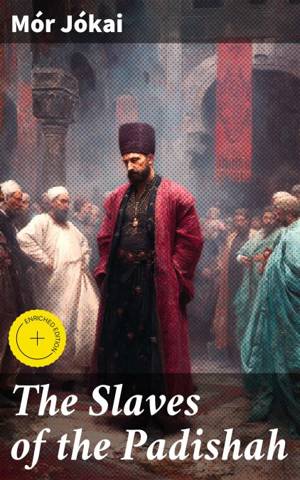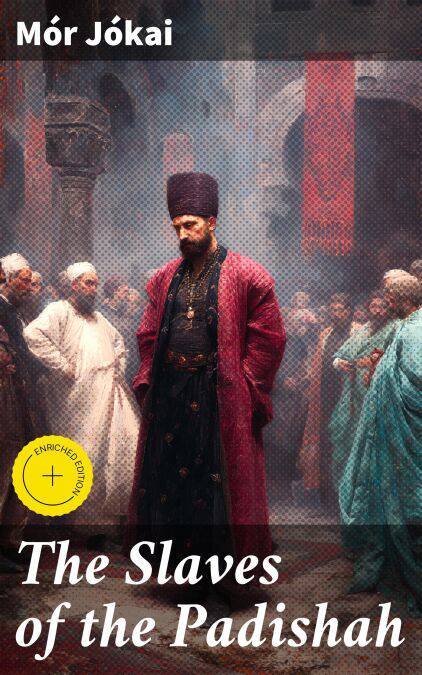
- Retrait en 2 heures
- Assortiment impressionnant
- Paiement sécurisé
- Toujours un magasin près de chez vous
- Retrait gratuit dans votre magasin Club
- 7.000.0000 titres dans notre catalogue
- Payer en toute sécurité
- Toujours un magasin près de chez vous
The Slaves of the Padishah EBOOK
Enriched edition. Captives of the Ottoman Empire: A Tale of Intrigue and Sacrifice
Mór Jókai
Ebook | Anglais
2,49 €
+ 2 points
Description
Set against the backdrop of the Ottoman Empire at its zenith, Mór Jókai's "The Slaves of the Padishah" is a vivid tapestry woven with rich characters and intricate plots that explore themes of allegiance, power, and the complexities of human relationships. Jókai employs a lush, romantic style that immerses readers in the exotic and often turbulent landscape of 19th-century Hungary and its interactions with neighboring cultures. Through the lens of adventure and political intrigue, he critiques the challenging socio-political structures of his time while providing a gripping narrative that keeps readers engaged. Mór Jókai, a prolific figure in Hungarian literature, was deeply influenced by the events surrounding the 1848 Hungarian Revolution, which instilled in him a fervent sense of nationalism and a desire to depict the struggles of his people. His diverse experiences'—from his legal studies to his role as a journalist'—shaped his understanding of society and governance, informing his nuanced portrayal of characters caught in the throes of conflict between personal desires and societal duties in "The Slaves of the Padishah." For readers interested in historical fiction that deftly blends romance, action, and political allegory, Jókai's work serves as a brilliant gateway. "The Slaves of the Padishah" not only entertains but also invites reflection on the enduring themes of freedom and constraint, making it an essential addition to any literary collection.
In this enriched edition, we have carefully created added value for your reading experience:
- A succinct Introduction situates the work's timeless appeal and themes.
- The Synopsis outlines the central plot, highlighting key developments without spoiling critical twists.
- A detailed Historical Context immerses you in the era's events and influences that shaped the writing.
- A thorough Analysis dissects symbols, motifs, and character arcs to unearth underlying meanings.
- Reflection questions prompt you to engage personally with the work's messages, connecting them to modern life.
- Hand‐picked Memorable Quotes shine a spotlight on moments of literary brilliance.
- Interactive footnotes clarify unusual references, historical allusions, and archaic phrases for an effortless, more informed read.
In this enriched edition, we have carefully created added value for your reading experience:
- A succinct Introduction situates the work's timeless appeal and themes.
- The Synopsis outlines the central plot, highlighting key developments without spoiling critical twists.
- A detailed Historical Context immerses you in the era's events and influences that shaped the writing.
- A thorough Analysis dissects symbols, motifs, and character arcs to unearth underlying meanings.
- Reflection questions prompt you to engage personally with the work's messages, connecting them to modern life.
- Hand‐picked Memorable Quotes shine a spotlight on moments of literary brilliance.
- Interactive footnotes clarify unusual references, historical allusions, and archaic phrases for an effortless, more informed read.
Spécifications
Parties prenantes
- Auteur(s) :
- Traducteur(s):
- Editeur:
Contenu
- Nombre de pages :
- 338
- Langue:
- Anglais
Caractéristiques
- EAN:
- 4064066205720
- Date de parution :
- 11-12-19
- Format:
- Ebook
- Protection digitale:
- Digital watermarking
- Format numérique:
- ePub

Seulement chez Librairie Club
+ 2 points sur votre carte client de Librairie Club
Les avis
Nous publions uniquement les avis qui respectent les conditions requises. Consultez nos conditions pour les avis.





